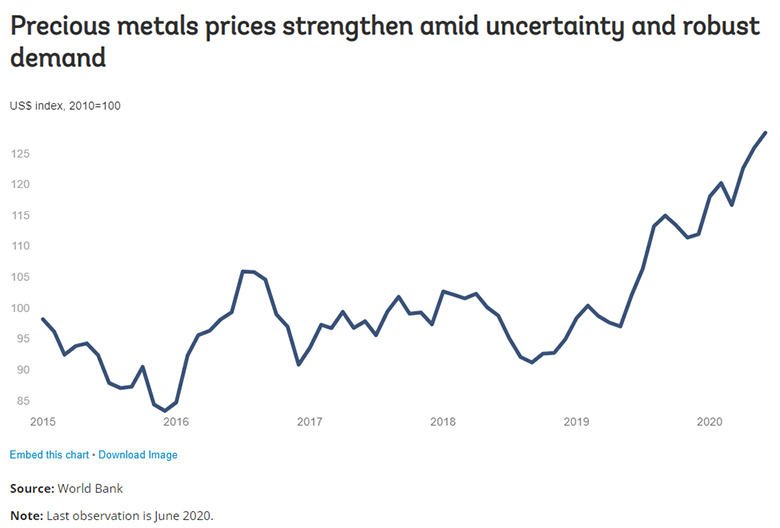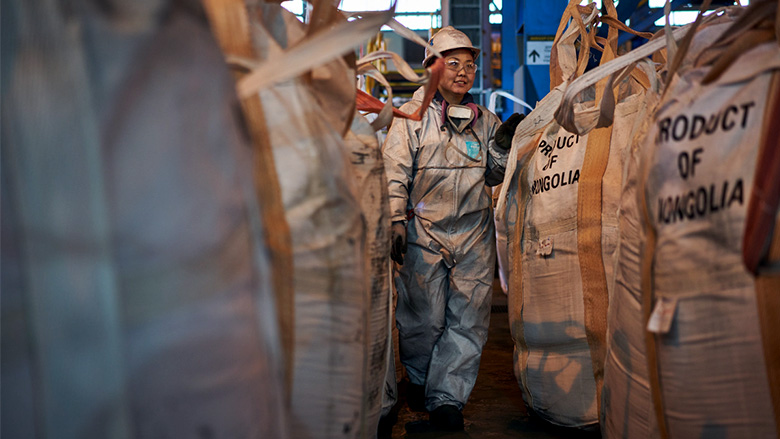PLUS: How Haiti is sowing seeds for COVID-19 resilience.
| Having trouble seeing this email? |
| |
| |
| |
| New trends in global trade—especially the rise in services, global value chains, and the digital economy—are opening up important economic opportunities for women. A new report marks the first major effort to quantify how women are affected by trade through the use of a new gender-disaggregated labor dataset. Lessons learned: In May and June, in the midst of the outbreak of COVID-19, India experienced two major cyclones. Managing the competing demands of a lockdown with an evacuation was challenging, but here are five early lessons learned. How the private sector can help: Now more than ever, companies are realizing the value of digital investments, from financial services to digital connectivity. We need to do more to increase access to the digital economy in Africa, and to make it more inclusive, from infrastructure to skills building. A stronger health care system: The COVID-19 pandemic has exposed many vulnerabilities in health care systems across South Asian countries, including Bangladesh. As we respond to and learn from this crisis, it presents an important opportunity for the country to re-examine the health care sector, including the need for strategic allocation of resources. Go deeper: Learn how the World Bank Group is responding to the COVID-19 (coronavirus) pandemic. Explore our multilingual portal. Click, bookmark and come back for updates. | | | |
| |
 | | | | COVID-19 increases the risk of food insecurity in Haiti, due to external factors such as financial markets, decreased remittances, and border closures. The local agriculture sector is essential to avoid further food insecurity. | | | |  | | | | Ensuring that migrants are included in policy responses can help protect this particularly vulnerable group during the crisis. But it is also smart economics! This is how. | | | | |
| |
| |
| |
| The data landscape has been changing rapidly, with the explosion of data from private sources, such as mobile phones, electronic transactions and satellites. But the coronavirus pandemic has drastically disrupted and hampered data collection efforts around the world – especially in developing countries. Learn more from our discussion with Haishan Fu, Director of the Development Data Group at the World Bank. | | | | |
|
| |
|
| |
| |
| |
 |
| #Rwanda became the first country in the world to incorporate drone technology into its #health care system for delivering blood and medical supplies to hospitals across its Southern and Western provinces. http://wrld.bg/QsR850xKJY9 |
 |
| #COVID19 has led > 180 countries to close schools temporarily, leaving 85% of learners out of school. Those with disabilities suffer the most. How can education systems learn from this experience to be more inclusive? http://wrld.bg/BOcA50AHhuz |
|  Precious metals prices continued their three-month long uptrend amid the COVID-19 pandemic. Demand for gold has been buoyed by safe-haven buying and global policy support in response to the pandemic. Silver and platinum have benefited from a rebound in industrial activity following an easing of containment measures. Precious metals prices are expected to average 13% higher in 2020 relative to 2019 on expectations of strong demand due to heightened global uncertainty and ultra-low real interest rates. Read More>> Precious metals prices continued their three-month long uptrend amid the COVID-19 pandemic. Demand for gold has been buoyed by safe-haven buying and global policy support in response to the pandemic. Silver and platinum have benefited from a rebound in industrial activity following an easing of containment measures. Precious metals prices are expected to average 13% higher in 2020 relative to 2019 on expectations of strong demand due to heightened global uncertainty and ultra-low real interest rates. Read More>>
|
| |
| Accredited journalists may obtain advance access to reports and information by registering with the Bank's Online Media Briefing Center, a password-protected site for working journalists. Material in this newsletter is copyrighted. Requests to reproduce it, in whole or in part, should be addressed to pubrights@worldbank.org For more information visit our website: worldbank.org. Access to Information | Other Bank Newsletters | Privacy Policy |
|







No comments:
Post a Comment